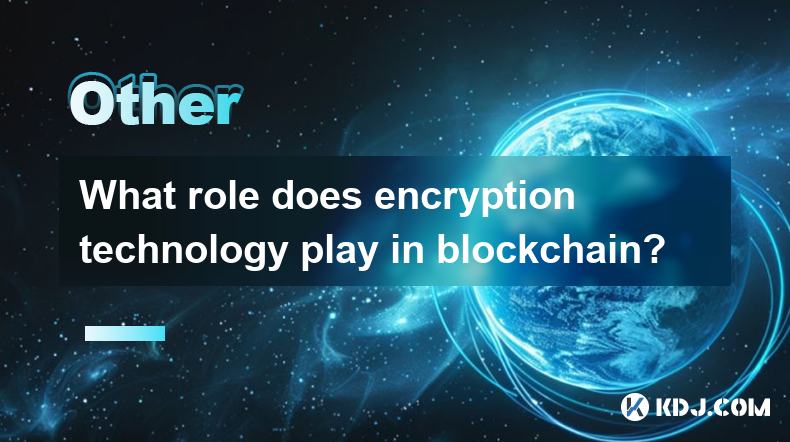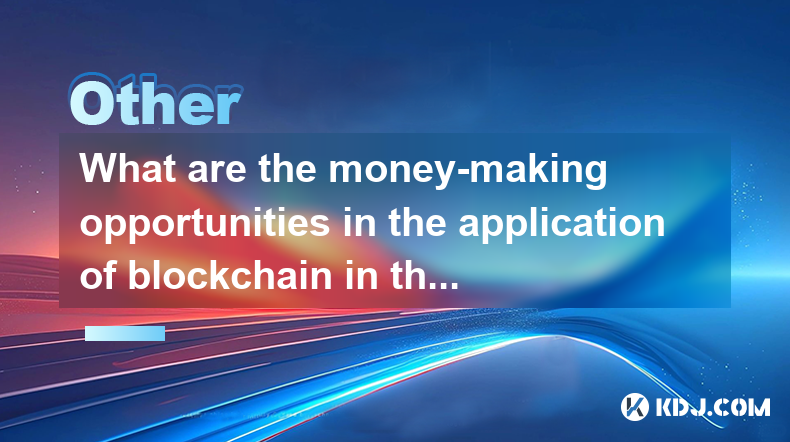-
 Bitcoin
Bitcoin $83,418.1551
-0.31% -
 Ethereum
Ethereum $1,808.8979
-0.41% -
 Tether USDt
Tether USDt $0.9999
0.02% -
 XRP
XRP $2.1463
1.00% -
 BNB
BNB $593.3907
-0.49% -
 Solana
Solana $120.0979
-1.63% -
 USDC
USDC $1.0001
0.00% -
 Dogecoin
Dogecoin $0.1689
-0.83% -
 Cardano
Cardano $0.6536
-1.17% -
 TRON
TRON $0.2370
-0.75% -
 Chainlink
Chainlink $12.8454
-0.75% -
 UNUS SED LEO
UNUS SED LEO $9.1245
-0.51% -
 Toncoin
Toncoin $3.2503
-4.22% -
 Stellar
Stellar $0.2527
-2.58% -
 Avalanche
Avalanche $17.8357
-1.69% -
 Shiba Inu
Shiba Inu $0.0...01231
-0.09% -
 Sui
Sui $2.2068
-1.49% -
 Hedera
Hedera $0.1623
-0.93% -
 Litecoin
Litecoin $82.5360
-2.34% -
 Polkadot
Polkadot $3.9567
-1.88% -
 Bitcoin Cash
Bitcoin Cash $306.9330
1.70% -
 MANTRA
MANTRA $6.2879
0.30% -
 Dai
Dai $1.0001
0.01% -
 Bitget Token
Bitget Token $4.4588
-1.48% -
 Ethena USDe
Ethena USDe $0.9992
0.01% -
 Pi
Pi $0.6376
24.33% -
 Hyperliquid
Hyperliquid $11.9460
0.08% -
 Monero
Monero $213.4997
-0.58% -
 Uniswap
Uniswap $5.8533
-0.79% -
 OKB
OKB $52.7441
6.99%
What role does encryption technology play in blockchain?
Blockchain security relies on diverse encryption methods: asymmetric encryption for digital signatures and public-private key cryptography, and symmetric encryption for faster transaction processing. Hashing algorithms ensure data integrity, making the system tamper-proof.
Mar 18, 2025 at 12:49 am

Key Points:
- Encryption secures transactions on the blockchain by ensuring confidentiality and integrity.
- Different types of encryption are used at various stages of blockchain operation.
- Asymmetric encryption is crucial for digital signatures and public-private key cryptography.
- Symmetric encryption enhances transaction speed and efficiency.
- Hashing algorithms provide data integrity and tamper-proof record-keeping.
- The choice of encryption method depends on the specific needs of the blockchain system.
What Role Does Encryption Technology Play in Blockchain?
Blockchain technology relies heavily on encryption to ensure its security and functionality. Without robust encryption, the entire system would be vulnerable to attacks and data manipulation, rendering it useless as a trustworthy and transparent ledger. Encryption safeguards the integrity and confidentiality of transactions and data stored on the blockchain.
Asymmetric Encryption: The Foundation of Blockchain Security
Asymmetric encryption, also known as public-key cryptography, is the cornerstone of blockchain security. Each user possesses a pair of keys: a public key, which is shared openly, and a private key, kept strictly confidential. The public key is used to verify digital signatures, ensuring the authenticity of transactions. The private key is used to create these signatures, proving ownership and authorization. This system prevents unauthorized access and alteration of transactions.
The Role of Digital Signatures
Digital signatures, created using asymmetric encryption, are essential for verifying the authenticity and integrity of transactions. When a user signs a transaction with their private key, a unique digital signature is generated. This signature can then be verified by anyone using the sender's public key, confirming the transaction's origin and preventing forgery or tampering.
Symmetric Encryption: Speeding Up Transactions
While asymmetric encryption secures the overall integrity of the blockchain, symmetric encryption plays a crucial role in enhancing the speed and efficiency of transactions. Symmetric encryption uses a single key for both encryption and decryption, making it significantly faster than asymmetric encryption. This is particularly important for large-scale blockchain networks where speed is essential for handling a high volume of transactions. Often, symmetric encryption is used to encrypt the actual transaction data before it's added to the blockchain, speeding up the process considerably.
Hashing Algorithms: Ensuring Data Integrity
Hashing algorithms are another vital component of blockchain security. These algorithms take input data of any size and produce a fixed-size string of characters, known as a hash. The crucial aspect is that even a tiny change in the input data results in a completely different hash. This property ensures data integrity, as any tampering with a block's data would immediately be detectable through a mismatch in the hash value.
The Importance of Hashing in Blockchain Blocks
Each block in a blockchain contains a hash of the previous block, creating a chain of linked blocks. This chain of hashes ensures that any alteration to a previous block would affect all subsequent blocks, making it impossible to tamper with the blockchain without detection. This "chain" aspect is what makes the blockchain technology so secure and tamper-proof.
Different Encryption Methods for Different Needs
The choice of encryption method in a blockchain system depends on the specific requirements. For instance, securing user identities and verifying transactions often relies on asymmetric encryption, while encrypting the actual transaction data might leverage symmetric encryption for speed. The combination of these techniques ensures a robust and efficient system.
Addressing Potential Vulnerabilities
While encryption significantly strengthens blockchain security, it's not a panacea. Potential vulnerabilities exist, such as quantum computing threats, which could potentially break current encryption methods. Ongoing research and development are focused on addressing these challenges and developing post-quantum cryptography solutions to maintain the security of blockchain systems. The continuous evolution of encryption techniques is critical to ensure the long-term security and reliability of blockchain technology.
The Ongoing Evolution of Blockchain Encryption
The cryptographic landscape is constantly evolving. New and improved encryption algorithms are being developed to counter emerging threats and enhance security. Blockchain developers must stay updated with the latest advancements to ensure their systems remain secure and resistant to potential attacks. The integration of robust and cutting-edge encryption methods is paramount for maintaining the trust and reliability of blockchain technology.
Frequently Asked Questions:
Q: What is the difference between symmetric and asymmetric encryption in blockchain?
A: Symmetric encryption uses a single key for both encryption and decryption, offering speed but requiring secure key exchange. Asymmetric encryption uses a public and private key pair, enabling secure key exchange but being slower.
Q: How does hashing contribute to blockchain security?
A: Hashing algorithms generate unique fingerprints for data. Any alteration to the data changes the hash, making data manipulation readily detectable. The chaining of block hashes ensures the integrity of the entire blockchain.
Q: Can blockchain encryption be broken?
A: While current encryption methods are highly secure, advancements in computing power, such as quantum computing, pose potential threats. Research into post-quantum cryptography is ongoing to address these future challenges.
Q: What are the implications of weak encryption in a blockchain?
A: Weak encryption would compromise the confidentiality and integrity of transactions, making the blockchain vulnerable to data breaches, manipulation, and loss of trust. It would essentially negate the core security features of the blockchain.
Q: How does encryption ensure anonymity in blockchain?
A: Encryption doesn't inherently guarantee anonymity. While it secures transactions, publicly available blockchain data can still be analyzed to potentially identify users, depending on the specific implementation. Techniques like mixing services or zero-knowledge proofs are used to enhance anonymity.
Disclaimer:info@kdj.com
The information provided is not trading advice. kdj.com does not assume any responsibility for any investments made based on the information provided in this article. Cryptocurrencies are highly volatile and it is highly recommended that you invest with caution after thorough research!
If you believe that the content used on this website infringes your copyright, please contact us immediately (info@kdj.com) and we will delete it promptly.
- Is Ethereum (ETH) Dead as an Investment?
- 2025-04-06 08:40:12
- Bitunix exchange launches the Ultra version of K-line (candlesticks) on its mobile app integrated with TradingView
- 2025-04-06 08:40:12
- As XRP Has Become the Focus of the Market Due to Ripple's Legal Victory and ETF Expectations
- 2025-04-06 08:35:12
- Trump-Themed Coins Dominate the List of Top-Performing Cryptos Today
- 2025-04-06 08:35:12
- Meme Coins Could Be Solana (SOL)'s Secret Weapon to $1,000
- 2025-04-06 08:30:12
- Did BlackRock's CEO Just Describe XRP Without Saying Its Name? Plus, One Ripple Alternative You Haven't Heard Of
- 2025-04-06 08:30:12
Related knowledge

Is the ranking of Chinese blockchain apps real and reliable?
Apr 04,2025 at 09:01pm
The ranking of Chinese blockchain apps has become a topic of interest for many in the cryptocurrency community, as it provides insights into the popularity and adoption of blockchain technology within China. However, the reliability and authenticity of these rankings are often questioned. This article aims to delve into the factors that influence these ...

What are the future development trends of blockchain game development?
Apr 03,2025 at 05:00am
Blockchain technology has revolutionized various industries, and gaming is no exception. As we look to the future, several trends are set to shape the development of blockchain games. These trends not only promise to enhance the gaming experience but also to integrate blockchain technology more seamlessly into the gaming ecosystem. Let's explore these t...

What are the high-return opportunities for blockchain investments?
Apr 05,2025 at 02:35pm
Blockchain technology has revolutionized the financial world, offering numerous high-return investment opportunities. These opportunities span various sectors within the cryptocurrency ecosystem, including cryptocurrencies, decentralized finance (DeFi), non-fungible tokens (NFTs), and blockchain startups. Each of these areas presents unique risks and re...

What are the maintenance costs of blockchain system development?
Apr 03,2025 at 06:07pm
The maintenance costs of blockchain system development are multifaceted and depend on various factors. These costs can include technical maintenance, security updates, infrastructure expenses, and personnel costs. Understanding these elements is crucial for anyone planning to develop or maintain a blockchain system. Technical MaintenanceTechnical mainte...

What are the money-making models of blockchain games?
Apr 04,2025 at 02:00pm
Blockchain games have emerged as a revolutionary way for players to earn real money while enjoying their favorite pastime. These games leverage the power of blockchain technology to create unique money-making models that benefit both the players and the developers. In this article, we will explore the various money-making models of blockchain games and ...

What are the money-making opportunities in the application of blockchain in the field of Internet of Things?
Apr 05,2025 at 10:35pm
The integration of blockchain technology with the Internet of Things (IoT) presents numerous money-making opportunities. Blockchain, with its decentralized and secure nature, can revolutionize how IoT devices interact, manage data, and conduct transactions. This article will explore various avenues where entrepreneurs, developers, and investors can capi...

Is the ranking of Chinese blockchain apps real and reliable?
Apr 04,2025 at 09:01pm
The ranking of Chinese blockchain apps has become a topic of interest for many in the cryptocurrency community, as it provides insights into the popularity and adoption of blockchain technology within China. However, the reliability and authenticity of these rankings are often questioned. This article aims to delve into the factors that influence these ...

What are the future development trends of blockchain game development?
Apr 03,2025 at 05:00am
Blockchain technology has revolutionized various industries, and gaming is no exception. As we look to the future, several trends are set to shape the development of blockchain games. These trends not only promise to enhance the gaming experience but also to integrate blockchain technology more seamlessly into the gaming ecosystem. Let's explore these t...

What are the high-return opportunities for blockchain investments?
Apr 05,2025 at 02:35pm
Blockchain technology has revolutionized the financial world, offering numerous high-return investment opportunities. These opportunities span various sectors within the cryptocurrency ecosystem, including cryptocurrencies, decentralized finance (DeFi), non-fungible tokens (NFTs), and blockchain startups. Each of these areas presents unique risks and re...

What are the maintenance costs of blockchain system development?
Apr 03,2025 at 06:07pm
The maintenance costs of blockchain system development are multifaceted and depend on various factors. These costs can include technical maintenance, security updates, infrastructure expenses, and personnel costs. Understanding these elements is crucial for anyone planning to develop or maintain a blockchain system. Technical MaintenanceTechnical mainte...

What are the money-making models of blockchain games?
Apr 04,2025 at 02:00pm
Blockchain games have emerged as a revolutionary way for players to earn real money while enjoying their favorite pastime. These games leverage the power of blockchain technology to create unique money-making models that benefit both the players and the developers. In this article, we will explore the various money-making models of blockchain games and ...

What are the money-making opportunities in the application of blockchain in the field of Internet of Things?
Apr 05,2025 at 10:35pm
The integration of blockchain technology with the Internet of Things (IoT) presents numerous money-making opportunities. Blockchain, with its decentralized and secure nature, can revolutionize how IoT devices interact, manage data, and conduct transactions. This article will explore various avenues where entrepreneurs, developers, and investors can capi...
See all articles





















































































